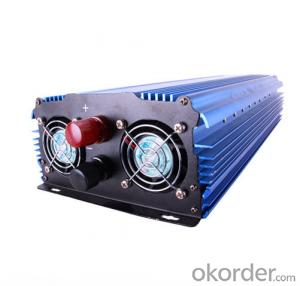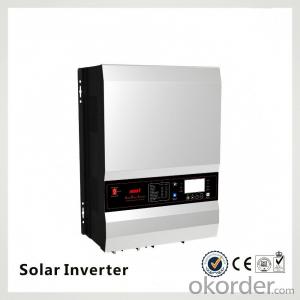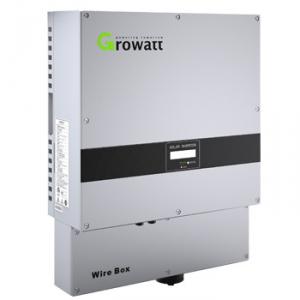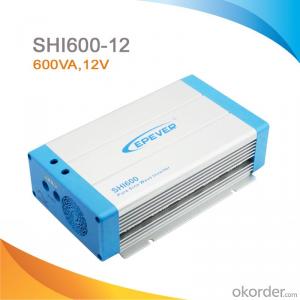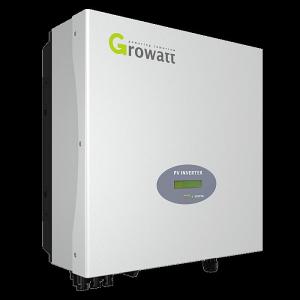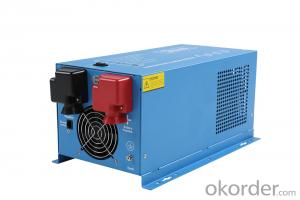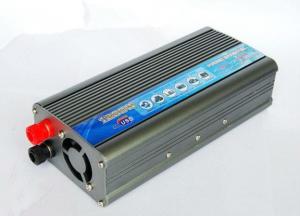Car Solar Inverter TY-HI2000 High Efficiency 2000 Watt 220V Inverter
- Loading Port:
- Qingdao
- Payment Terms:
- TT OR LC
- Min Order Qty:
- 50000 watt
- Supply Capability:
- 3000000 watt/month
OKorder Service Pledge
OKorder Financial Service
You Might Also Like
1. Structure of Solar Inverter TY-HI2000 High Efficiency 2000 Watt 220V Inverter Description
A solar inverter, or PV inverter, or Solar converter, converts the variable direct current (DC) output of a photovoltaic (PV) solar panel into a utility frequency alternating current (AC) that can be fed into a commercial electrical grid or used by a local, off-grid electrical network. It is a critical BOS–component in a photovoltaic system, allowing the use of ordinary AC-powered equipment. Solar inverters have special functions adapted for use with photovoltaic arrays, including maximum power point tracking and anti-islanding protection.
2. Main Features of the Solar Inverter TY-HI2000 High Efficiency 2000 Watt 220V Inverter
﹒Soft-start function, increase loading capacity.
﹒Aluminum alloy shell, with battery clip and manual.
﹒High-end chip, high-performance CPU, improve the working reliability.
﹒Sound &light and under-voltage alarm, with frequency-conversion cooling fan.
﹒Over voltage, low voltage, over temperature, overload, short circuit, reverse connection protection.
3. Solar Inverter TY-HI2000 High Efficiency 2000 Watt 220V Inverter Images
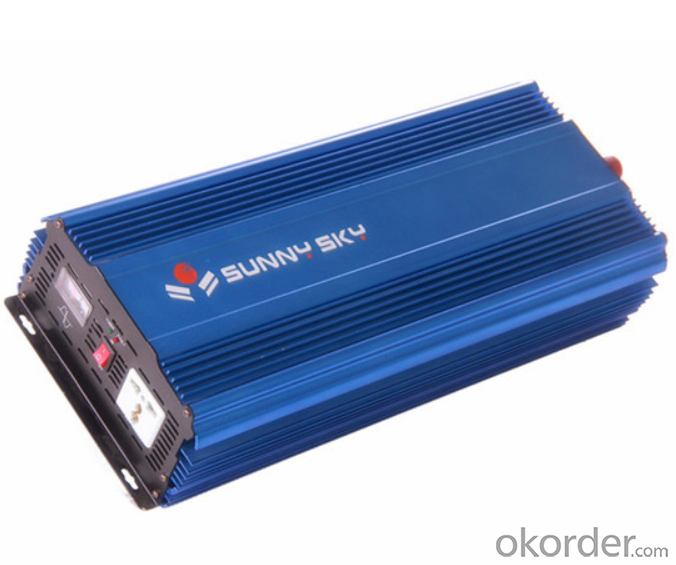
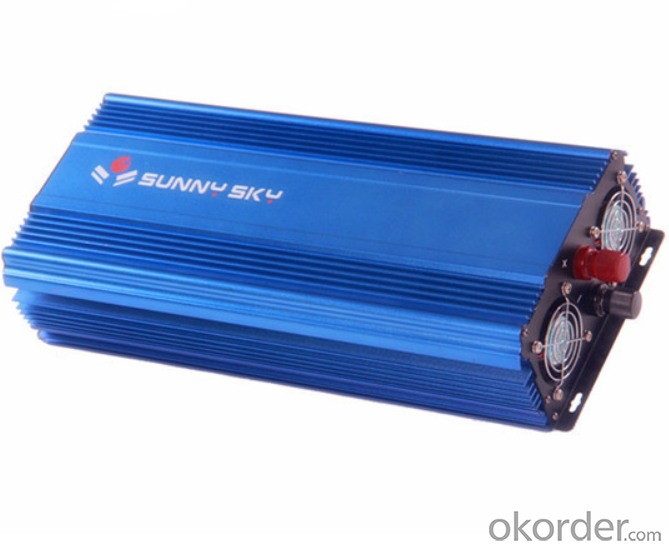
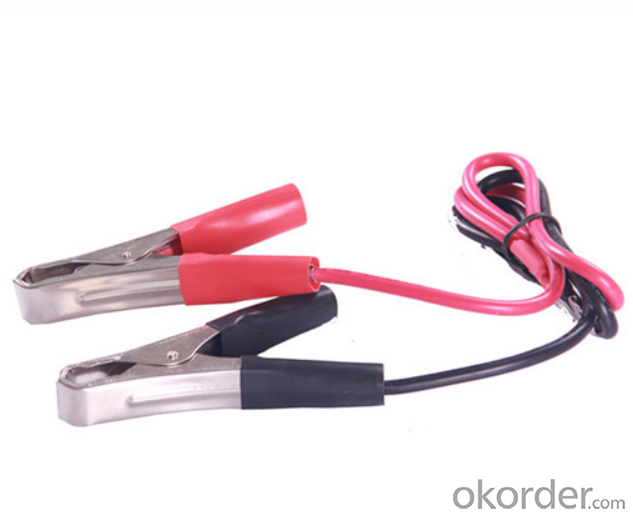
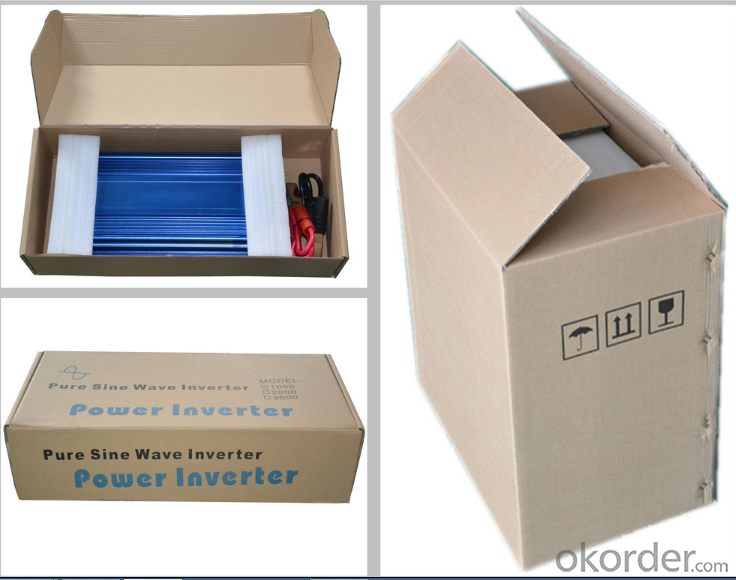
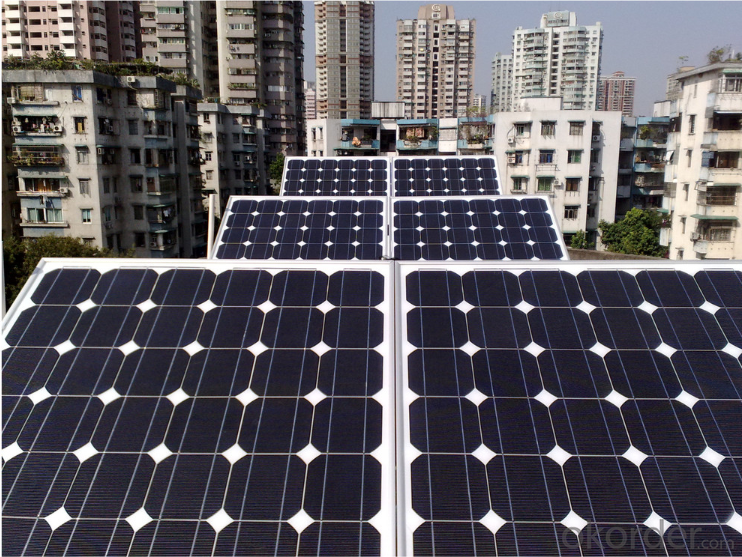
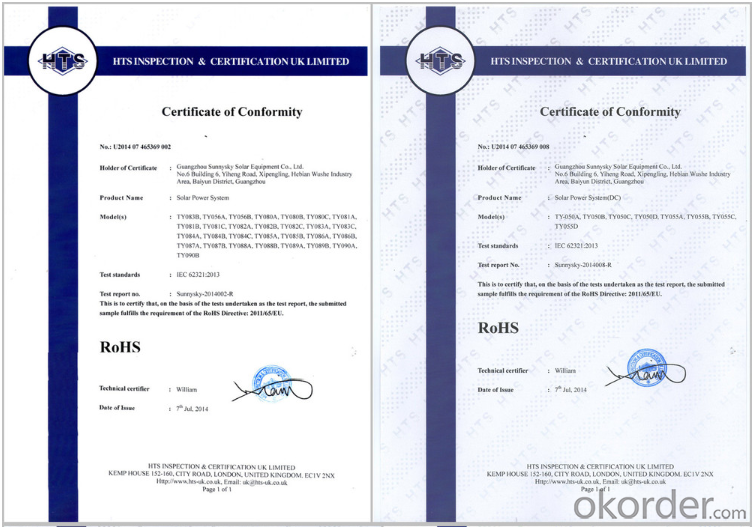
4. Solar Inverter TY-HI2000 High Efficiency 2000 Watt 220V Inverter Specification
ITEM NO | TY-HI2000W | |
OUTPUT | Output Volt | 100/110/220/230/240VAC |
Continuous Power | 2000W | |
Surge Power | 4000W | |
Waveform | Pure Sine Wave | |
Frequency | 50Hz/60Hz | |
Output Voltage | Low & High 10% | |
No Load Curent Draw | ≤1.6A | |
Frequency | >93% | |
INPUT | DC Input Voltage | 12VDC |
DC Operating Voltage | 11-15V | |
PROTECTION | Working Temperature | Between -10°C and +50°C |
DC Low-voltage Protection | 9-10.5V | |
DC Low-voltage Alarm | 9.5-11V | |
Overload Protection | 2000-2400W | |
DC Over-voltage Protection | ≥15V | |
Fuse | 35A*3 | |
Temperature Protection | +60°C--+70°C | |
Short-circuit Protection | Yes | |
Green Led Indicator | Green Light(Working),Flash(Overload Protection) | |
Red LED Indicator | Red Light(Error Protection) | |
5. FAQ of Solar Inverter TY-HI2000 High Efficiency 2000 Watt 220V Inverter
Q1. What is A Power Inverter?
A power inverter, or inverter, is an electrical power converter that changes direct current (DC) to alternating.current (AC); the converted AC can be at any required voltage and frequency.
Q2. What's The Difference Between 12, 24, And 48 Volt Inverters?
This refers to the input voltage from the battery bank. The main consideration is that at higher voltages the current is less so that you can use smaller wires between your solar panel array and your battery bank.
Q3. What's The Difference Between A Pure Sine Wave Inverter And A Modified Sine Wave Inverter?
A pure sine wave inverter produces a nearly perfect sine wave output (less than 3% total harmonic distortion) that is essentially the same as utility supplied grid power. Thus it is compatible with all AC electronic devices. A modified sine wave inverter is not as close, but is still quite satisfactory in most cases.
Q4. How do we equip an appropriate inverter for battery?
Take a battery with 12V/50AH as an example. Power equal current plus voltage then we know the power of battery is 600W. 12V*50A=600W. So we can choose a 600W power inverter according this theoretical value.
- Q: How does a solar inverter handle voltage fluctuations from the grid?
- A solar inverter handles voltage fluctuations from the grid by continuously monitoring the incoming voltage. When fluctuations occur, the inverter adjusts its internal components to maintain a stable output voltage. It does this by regulating the power conversion process, either by decreasing or increasing the output voltage as necessary. This ensures that the solar energy generated by the panels remains at a consistent level, regardless of the voltage fluctuations from the grid.
- Q: Can a solar inverter be used with battery storage?
- Yes, a solar inverter can be used with battery storage. In fact, integrating a solar inverter with battery storage systems allows for storing excess solar energy generated during the day and using it at night or during times of high energy demand. This combination enables greater energy independence and the ability to use renewable energy even when the sun is not shining.
- Q: Can a solar inverter work without batteries?
- Yes, a solar inverter can work without batteries. Solar inverters are devices that convert the direct current (DC) produced by solar panels into alternating current (AC) which can be used to power household appliances or fed into the electrical grid. While batteries can store excess energy produced by the solar panels, they are not necessary for the basic functioning of a solar inverter. The inverter can directly convert the DC power into AC power for immediate use without the need for energy storage.
- Q: What is the maximum number of AC outputs in a solar inverter?
- The maximum number of AC outputs in a solar inverter can vary depending on the specific model and design, but typically it ranges from one to three AC outputs.
- Q: What are the key features to consider when purchasing a solar inverter?
- When purchasing a solar inverter, some key features to consider are the capacity and efficiency of the inverter, its compatibility with your solar panel system, the type of inverter technology used (such as string or microinverters), the warranty and reliability of the brand, and any additional features or smart capabilities offered by the inverter.
- Q: What are the common troubleshooting steps for a malfunctioning solar inverter?
- The common troubleshooting steps for a malfunctioning solar inverter may include checking the power supply, inspecting the wiring connections, resetting the inverter, performing a firmware update, checking for error codes or error messages, and consulting the manufacturer's manual or contacting technical support for further assistance.
- Q: What is the maximum power capacity that a solar inverter can handle?
- The maximum power capacity that a solar inverter can handle depends on its specific model and design. In general, solar inverters range in power capacities from a few hundred watts to several megawatts.
- Q: How does the power factor correction affect the performance of a solar inverter?
- Power factor correction can greatly improve the performance of a solar inverter by ensuring that the power drawn from the grid is utilized efficiently. By correcting the power factor, the inverter reduces the reactive power component and increases the power factor closer to unity. This reduction in reactive power results in a more efficient utilization of the available power, leading to increased energy conversion efficiency and reduced losses in the inverter. Additionally, power factor correction helps in complying with grid regulations and prevents penalties or restrictions imposed by utility companies.
- Q: What are the key considerations for selecting a reliable solar inverter manufacturer?
- When selecting a reliable solar inverter manufacturer, key considerations include the manufacturer's reputation and experience in the industry, the quality and reliability of their products, the efficiency and performance of their inverters, the warranty and after-sales support provided, the compatibility of their inverters with your specific solar system requirements, and the manufacturer's financial stability and longevity in the market. Additionally, checking customer reviews and feedback can provide valuable insights into the manufacturer's track record and customer satisfaction.
- Q: Are there any limitations on the angle of the solar panels when using a solar inverter?
- Yes, there are limitations on the angle of the solar panels when using a solar inverter. The optimal angle for solar panels is typically determined based on the geographical location and the season. Deviating too much from the recommended angle can result in decreased energy production.
Send your message to us
Car Solar Inverter TY-HI2000 High Efficiency 2000 Watt 220V Inverter
- Loading Port:
- Qingdao
- Payment Terms:
- TT OR LC
- Min Order Qty:
- 50000 watt
- Supply Capability:
- 3000000 watt/month
OKorder Service Pledge
OKorder Financial Service
Similar products
Hot products
Hot Searches
Related keywords
